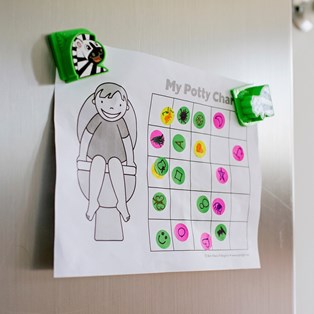Why your child is an angel for everyone but you!

It's a perplexing problem for many parents.
By Livia Gamble
April 12 2017
Parents of toddlers, does this sound familiar? Your gorgeous little girl is an absolute angel... according to everyone else!
People everywhere cannot rave enough about how compliant, cooperative, wonderful and gentle she is. Even staff at preschool gush over how well-behaved and how lovely your little sweetheart is.
However, the very minute you strap her into the car seat to go home, the ‘devil’ comes out. You’re faced with a child who screams at you, kicks the seat and demands your total attention. You wonder what her favourite preschool teacher Miss Mel would think if she ever saw this behaviour in full flight, but equally, you know that will never happen.
Who, me?
This doesn’t surprise you though, as each morning is a trial of ensuring your angel’s hair is perfectly right and that her socks are equal. No chance of quickly dressing, so you can be on time for work. Instead, there are tears and battles over what perfect outfit she needs to wear.
Herein lies part of the answer as to why your child is, in fact, a ‘street angel’.
Many toddlers like yours, be they little boys or girls, have an innate high level of anxiety. They often display early traits of perfectionism and appear to be born more emotionally sensitive, with a lower level of self-image. Therefore early on, your angel can be very driven to want to dress like all the other kids and to look perfect, so that she doesn’t attract any negative attention or teasing and so that everyone will like her.
Therefore early on, your angel can be very driven to want to dress like all the other kids and to look perfect, so that she doesn’t attract any negative attention or teasing and so that everyone will like her.
Why does it happen?
Parents are often blamed for ‘creating’ this street angel/home devil. But this is rarely a poor parenting problem. In fact, most mums of such toddlers are, in fact, very caring and affectionate. Parents may have ‘created’ this angel, but her troubling traits
In fact, most mums of such toddlers are, in fact, very caring and affectionate. Parents may have ‘created’ this angel, but her troubling traits are more likely to be genetically inherited. In other words, we often find that these children have older relatives with similar traits toward perfectionism, anxiety and a need for social approval.
In other words, we often find that these children have older relatives with similar traits toward perfectionism, anxiety and a need for social approval.
Psychology tells us that parents haven’t created this bad behaviour. Not only do these kids have inborn traits, but they also tend to have hidden insecurities and an intense fear of being embarrassed in public. As a result, your angel would be absolutely mortified about getting into trouble at preschool or being disciplined in public. So, she suppresses her behaviour and intense feelings at this time.
However, this suppressed behaviour erupts as soon as she gets in mum or dad’s car. Similarly, toddlers like this have an intense fear of the ‘unknown’, such as what would happen if Miss Mel took me to the office and talked firmly to me. This further drives the angelic behaviour when out, because they don’t have this fear of home.
Unconditional love
Toddlers like your angel also tend to dump more on the person they love most, as well as the person they know will love them no matter what.
They know this parent will still unconditionally love and care for them. Often the most loving mums or dads have the most intense home devils, as they know that extremely loving mum will still come back and love them.
Dealing with a street angel/ home devil is challenging, but change is possible. The process begins with communication, preparation and consistency.
At a quiet time, your angel needs to be calmly but firmly prepared for a new consistent structure. While being sympathetic, parents need to be confident and firm that home devil behaviour cannot be tolerated anymore.
She needs to know that tantrums mean that mum will withdraw, not communicate and not give attention to negative behaviour. Tantrums will mean ‘time away’, not as a harsh punishment, but to simply affirm that she needs to be separated into a quiet spot, where no family attention is given.
Build her up
This structure also needs to be balanced with lots of positive input, attention and recognition for her being angelic at home, as she is elsewhere. She needs lots of hope that we all know she can beat this tantrum, and get lots of love, time and affection. Finally, she needs lots of genuine self-image building, and to be told she is great and lovable just for being herself, and not for being perfect.













